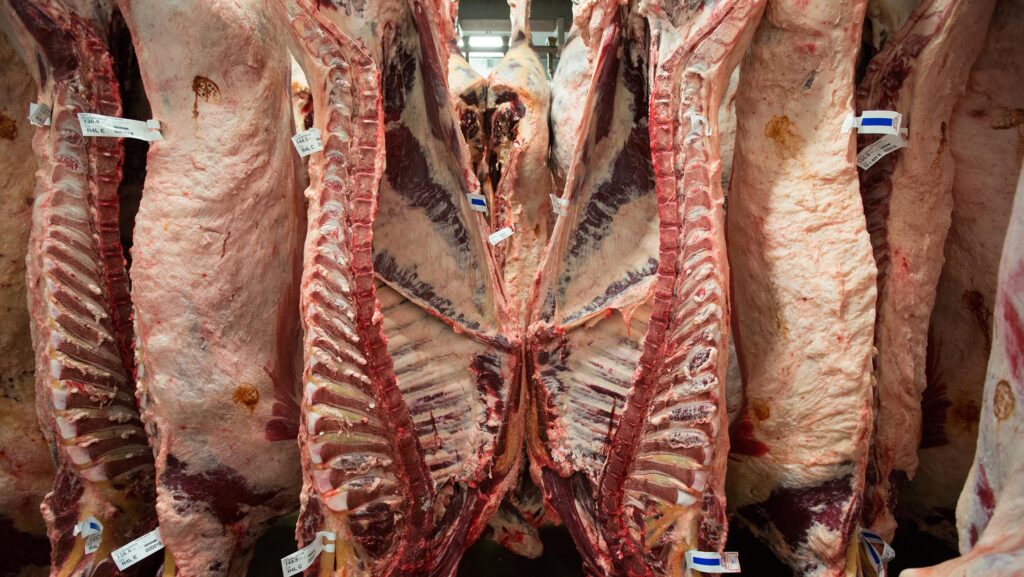Fraud in beef supply chain identified as ‘emerging threat’
 © Tim Scrivener
© Tim Scrivener Fraudulent entry of cattle into the beef supply chain has been identified by the Food Standards Agency (FSA) as an “emerging threat” in its latest report on food crime.
The regulator has warned that cattle ID systems are likely to be vulnerable to deliberately undeclared movements and deaths, where there is a realistic possibility that ear-tag removal and switching is occurring.
See also: Farmers Weekly‘s meat scandal expose: One year on
Its latest report also noted it is “highly likely” that stolen cattle are given new identities to enter legitimate abattoirs, if they are not slaughtered illegally – though cattle theft is still relatively unusual in Great Britain.
A spokesperson for the agency would not be drawn on whether other kinds of cattle fraud were taking place at processor level, saying the report shared as much information as could be disclosed at present.
The threat – which the FSA described to Farmers Weekly as “hard to quantify” – was revealed in the UK Food Crime Strategic Assessment, produced by the FSA’s National Food Crime Unit (NFCU) and Food Standards Scotland’s Food Crime and Incidents Unit.
According to the assessment, it became apparent as a result of intelligence reporting in 2023.
The Association of Independent Meat Suppliers (Aims’) head of communications Tony Goodger said the report was “very welcome and very timely”.
But he urged the FSA to share the intelligence it had gathered on the threat with industry.
“It’s in our interests, and in the wider industry’s interests, to know what their intelligence is and where they’re picking it up from,” he said.
“If they’re picking it up at the early stages in the supply chain, we can at the very least warn businesses – particularly catering butchers – that they should be only buying from FSA-licensed and inspected businesses.”
According to the FSA report, misrepresentation of red meat and poultry with regard to status, origin or durability date remains one of the most common types of food crime in the UK.
But waste diversion offences – where food, drink or feed intended for disposal finds its way back into the supply chain – presented the greatest increase in threat level since the last assessment in 2020.
The FSA said financial incentives for waste diversion are stronger now than they were four years ago, with the cost of proteins, energy and waste disposal continually increasing.
